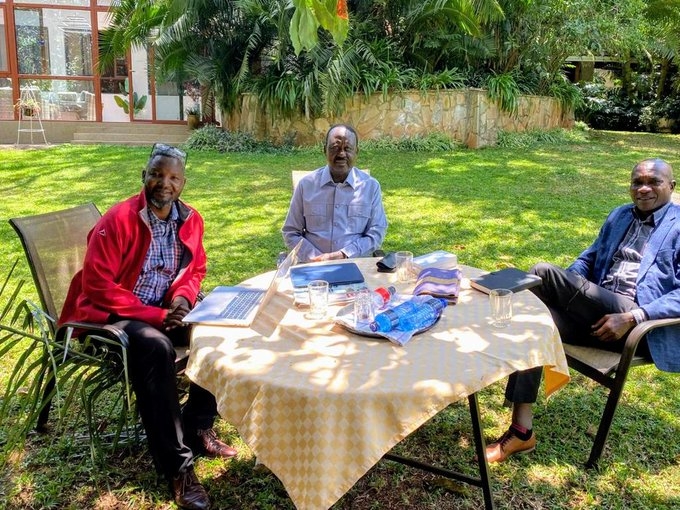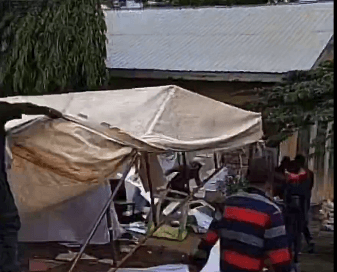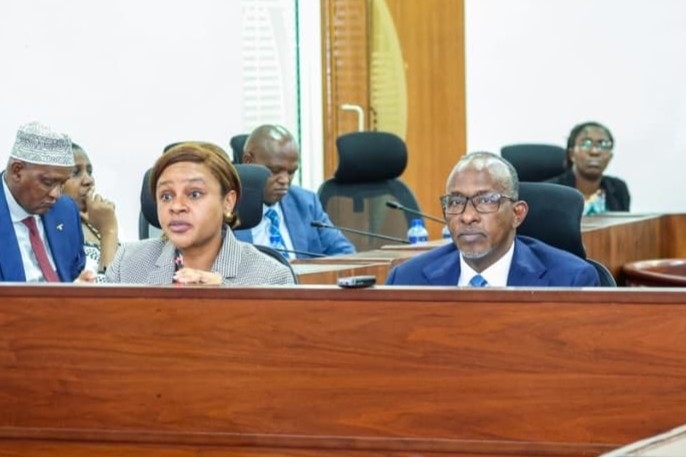The guidelines put in place by the Ministry of Health to curb the spread of Covid-19 are a tall order to children living with disability.
Some of the children have to use their hands to move; how do they ensure they wash their hands or sanitise and remain clean?
For the epileptic or mentally challenged students who cannot control saliva and drool, how do they wear their masks?
Portreiz School in Mombasa gives a clear picture of how the schools have to work three times harder to ensure they follow the measures placed by the ministry.
The school has 216 students. Even though the school accommodates regular students, most of the students need a helping hand to do something.
Principal Mercy Mwandeje says the administration and its staff have to do extra work to ensure the school does not report any case of Covid-19.
“Our learners have different disabilities with different levels. Therefore, we have to personalise the help we give to each student,” she said.
Some of the students have to use their hands while moving around or moving their wheelchairs. This presents difficulties in washing their hands or sanitising and generally maintaining hand cleanliness.
Learners who cannot control their saliva cannot use a mask as it gets wet due to drooling, meaning the caretakers have to change the masks of the child often.
The school also has students who are epileptic and require plenty of air due to the nature of their condition. Others get irritated by things such as masks and keep pulling them off.
“We have students who have to be assisted as they cannot do things such as feeding by themselves and therefore need assistance from our caregivers. In this case, social distancing is impossible,” Mwandeje said.
With all these challenges, children with disabilities cannot fully comply with the Covid rules.
However, Portreiz School has done its best to ensure the protocols are observed. They have put hand washing points in every corner of the school, starting from the gate.
Thanks to donors, they have adequate face masks and, therefore, can afford to give an extra mask to each student despite their condition.
“All the staff, including teachers, our caregivers and even students themselves, have a responsibility of ensuring adherence of Covid-19 protocols. Therefore, all students are attended round the clock,” Mwandeje said.
In classrooms, social distancing has been put in place. It has, however, been difficult to maintain the same outside the class due to the nature of some of the students, who either assist their colleagues or are being assisted.
According to a 2020 report by the United Disabled Persons of Kenya, even though disability alone may not be related to a higher risk of getting Covid-19, some PWDs are at a higher risk of infection or severe illness because of their underlying medical conditions.
The report said some PWDs are less likely to understand the need for safety precautions against the virus, such as to engage in handwashing and sanitising.
“Because of the need for physical care and direct support from family members or others, persons with visual, auditory and mobility impairments are less able to engage in social distancing or isolation. They may not be able to avoid coming into close contact with others who may be infected, such as direct support providers and family members,” the report said.
According to Human Rights Watch, governments ought to have considered the specific needs of people with disabilities when developing prevention strategies.
The rights group said governments should have developed additional guidelines on handwashing for people with disabilities unable to wash their hands frequently or on their own or lack access to sufficient water for hygiene.












